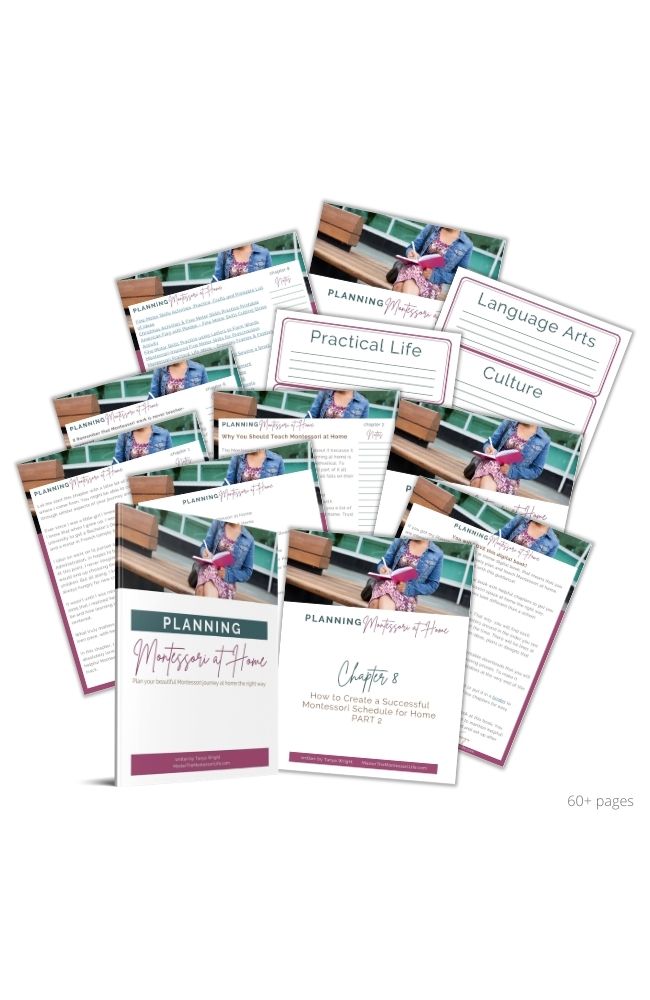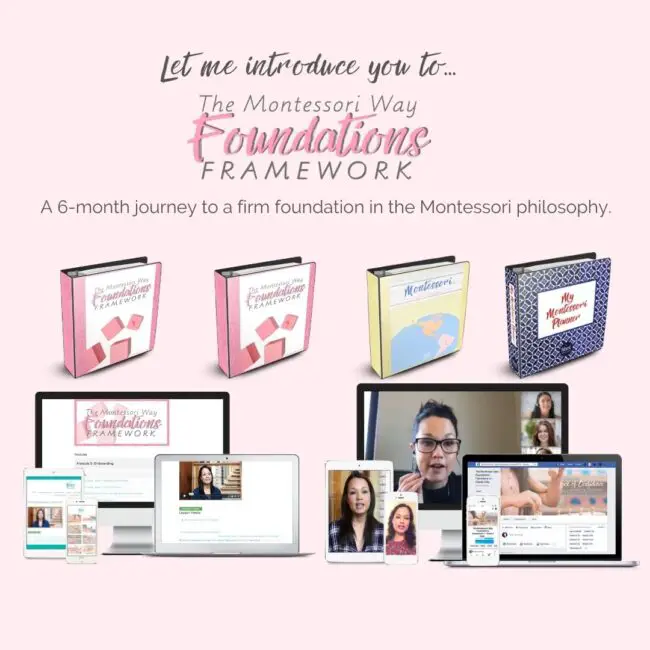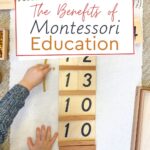Let’s discuss the benefits of Montessori education in this post because there is much to cover in this topic alone. The Montessori education system offers a unique, child-centered approach to learning that promotes independence, creativity, and lifelong learning.
Developed by Dr. Maria Montessori over a century ago, this educational philosophy emphasizes hands-on learning, self-directed activity, and collaborative play. By allowing children the freedom to explore and learn at their own pace, Montessori education nurtures a natural curiosity and passion for discovery.
One of the key benefits of the Montessori method is its focus on individualized learning. Unlike traditional classroom settings, Montessori educators tailor their teaching methods to the needs and interests of each child.
This personalized approach helps students develop a deep understanding of subjects, encourages critical thinking, and fosters a sense of confidence and self-motivation. The result is a learning environment where students are actively engaged and excited about their education.

Another significant advantage is the fostering of social and emotional development. In a Montessori classroom, children of varying ages learn together, which encourages older students to mentor younger ones and develop leadership skills.
This mixed-age setting also helps children learn empathy, cooperation, and respect for others, creating a strong sense of community. By emphasizing collaboration over competition, Montessori education cultivates a positive and nurturing atmosphere that supports the holistic growth of the child.
Before we move further into our topic, let’s discuss some of the most rewarding benefits that you will both aim as goals and bask in as your baby grows up in the Montessori lifestyle. As I mentioned in last chapter, there are many benefits. Here are a few that you will be pleased with.
Fosters Independence
From a very young age, Montessori students are encouraged to take care of themselves and their environment. These skills build confidence and a sense of capability. By providing children with the tools and resources they need to be self-sufficient, Montessori education fosters a sense of independence that will serve them well throughout their lives.
In addition to promoting self-care, the Montessori approach empowers children to make their own choices and take responsibility for their actions. This autonomy teaches decision-making skills and reinforces the understanding that actions have consequences.
By practicing independence in a supportive environment, children gain the ability to problem-solve and navigate challenges, preparing them for future academic and personal success.

Starting Montessori at Home (digital book)
$7.00
Do you want to start Montessori at home, but don’t know where to start? This 30-page digital book is going to send you in the right direction on how to start from step one and give you the guidance you need so that by the end of it, you will look back and you will feel successful and ready for the next step.
EU BUYERS, GO HERE.
Encourages a Love of Learning
Montessori education is designed to cultivate an intrinsic motivation for learning by allowing children to follow their interests and passions. This method refrains from using traditional rewards and punishments, which helps students find joy in learning for its own sake.
By engaging with activities that capture their imagination and curiosity, children develop a lifelong love of learning. This self-motivation not only leads to academic success but also prepares them to be enthusiastic and independent learners throughout their lives.

Nurtures Creativity
Montessori classrooms are designed to stimulate creativity in children. With open-ended activities, students have the freedom to explore and express themselves creatively without fear of failure or judgment. The emphasis on process rather than the end result allows children to experiment, take risks, and develop their unique talents.
In addition to encouraging creativity, Montessori education also teaches practical skills such as cooking, gardening, and woodworking. These hands-on activities provide a well-rounded education that fosters creativity in both traditional and non-traditional areas.
Prepares for Future Success
The skills and values learned through Montessori education set a strong foundation for future academic and personal success. Children develop critical thinking, problem-solving, and time-management skills that are essential for success in the modern world.
Moreover, the independent and self-motivated mindset cultivated by Montessori education prepares children to adapt to changing circumstances and take ownership of their own learning. By nurturing a love of learning and providing a supportive environment for personal growth, Montessori education equips children with the tools to excel in all aspects of life.

Planning Montessori at Home (digital book)
$7.00
Do you want to plan your Montessori at home, but don’t know where to start? This 65-page digital book is going to give you the guidance you need to do it right from the beginning. There are some tips and tricks that man don’t know will shortcut their planning by a lot.
EU BUYERS, GO HERE.
Cultivates Lifelong Learners
Because children have the freedom to pursue their interests and are not pushed or rewarded externally, they often develop a love for learning that follows them throughout their lives.
This intrinsic love for learning nurtured in a Montessori classroom translates into a curious and inquisitive mindset that drives children to explore new ideas and concepts independently. By fostering self-directed learning and encouraging students to seek out information on their own, the Montessori approach builds a strong foundation for ongoing educational engagement and intellectual growth.
Consequently, children emerge from Montessori environments not only well-prepared for future academic challenges but also equipped with a profound appreciation for the process of learning itself. This lifelong enthusiasm for discovery and knowledge ensures that Montessori students continue to thrive both inside and outside the classroom, eager to face new experiences and opportunities with confidence and curiosity.

Encourages Social and Emotional Development
The Montessori Method places significant emphasis on developing social skills and emotional intelligence. The mixed-age classroom and communal learning activities help children learn empathy, cooperation, and respect for others’ thoughts and feelings.
Children in Montessori classrooms often engage in activities that require teamwork and collaboration. This is consistently fostering an environment of mutual support and understanding. Through these interactions, they learn effective communication skills and develop the ability to work harmoniously within a group.
Moreover, by participating in group problem-solving tasks and peer-led discussions, children gain confidence in expressing their ideas and become more adept at navigating social dynamics. This holistic approach to social and emotional development ensures that children build strong relationships and develop a sense of community. They are essential skills for their future personal and professional lives.
Prepares Children for the Real World
Beyond academic skills, Montessori education teaches practical life skills and adaptive thinking. Students often emerge as creative problem solvers who can work well independently and in groups.
Montessori education also emphasizes environmental stewardship and global awareness, helping children understand their role as responsible citizens of the world. Through lessons on ecology, cultural studies, and global geography, students develop an appreciation for the interconnectedness of all life.
They learn about different cultures and traditions. They are fostering a sense of respect and curiosity about the world beyond their immediate environment. By instilling these values from a young age, Montessori education helps the child in many way. It helps create compassionate, well-rounded individuals. They are mindful of their impact on the planet and driven to contribute positively to society.
This comprehensive approach ensures that Montessori students are academically prepared. But that they are also equipped with the moral and ethical foundations necessary for creating a better world.

Starting, Planning & Teaching Montessori at Home BUNDLE of 3
$17.00
Do you want to start Montessori at home, but don’t know where to start? This 30-page digital book is going to send you in the right direction on how to start from step one and give you the guidance you need so that by the end of it, you will look back and you will feel successful and ready for the next step.
Do you want to plan your Montessori at home, but don’t know where to start? This 65-page digital book is going to give you the guidance you need to do it right from the beginning. Thereare some tips and trick that man don’t know will shortcut their planning by a lot.
Do you want to teach Montessori at home, but don’t know where to start? This 34-page digital book is going to show you exactly what you need to set yourself up for success as you venture on this fantastic journey.
EU BUYERS, GO HERE.
Final Thoughts
In conclusion, the benefits of Montessori education extend far beyond traditional academic achievements. This holistic approach to learning fosters independence, encourages a love of learning, nurtures creativity, and prepares children for future success. By embracing the Montessori philosophy, parents and educators can help children reach their full potential and become lifelong learners.
If you are considering a Montessori education for your child, know that this decision will have a positive impact. The impact will be on their academic, social, emotional, and personal growth. Keep reading to learn more about the specific principles and practices of Montessori education. We hope this guide will provide you with the necessary information to make an informed decision about your child’s education.
Remember, every child is unique and deserves an education that supports their individual growth and development. By choosing Montessori education, you are giving your child a strong foundation for success in all aspects of life. As Dr. Maria Montessori once said, “Education is a natural process carried out by the child and is not acquired by listening to words but by experiences in the environment.”
Let’s dive deeper into this philosophy and see how it can benefit your child. So, let’s continue our journey towards understanding the Montessori method and its principles.
You might also enjoy these relevant topics:
‘Discover What’s Stopping You from Creating Smooth, Successful Montessori Days’ Assessment
Take the FREE Montessori Assessment here!
Discover what’s stopping you from creating smooth, successful Montessori days.
Take the assessment and get the free printable starter kit that fits your assessment results to help you move forward today!

The Montessori Way Foundations Framework
Are you ready to become a centered, organized Montessori Guide, to nurture happy, normalized children and to create smooth, successful Montessori days? Then come find out more about The Montessori Way Foundations Framework!
The Montessori Way Foundations Framework is a 6-month program designed to equip Montessorians of all expertise levels to build a firm and lasting foundation in the Montessori philosophy that leads to smooth, successful Montessori days.
THIS is what you need for the transformation that you desire and that your children deserve.
- The First Year of Life: Developmental Stages and Key Milestones
 When you are looking at raising your baby the Montessori way, the first thing you need to focus on is the baby’s developmental stages during the first year of life.
When you are looking at raising your baby the Montessori way, the first thing you need to focus on is the baby’s developmental stages during the first year of life. - A Thorough Guide to Montessori Sight Words
 One of the core components of the Montessori literacy program is the introduction of sight words. But what exactly are Montessori sight words, and why are they important?
One of the core components of the Montessori literacy program is the introduction of sight words. But what exactly are Montessori sight words, and why are they important? - Benefits of Montessori Education
 Let’s discuss the benefits of Montessori education in this post because there is much to cover in this topic alone.
Let’s discuss the benefits of Montessori education in this post because there is much to cover in this topic alone.










Leave a Reply